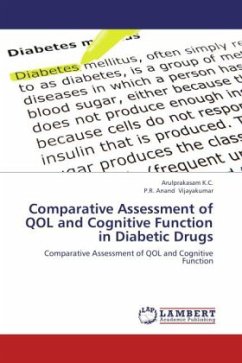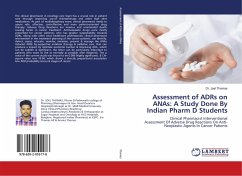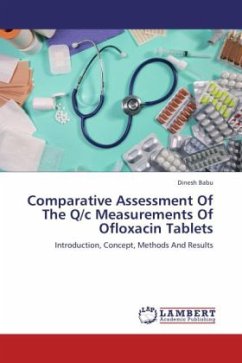
Comparative Assessment of QOL and Cognitive Function in Diabetic Drugs
Comparative Assessment of QOL and Cognitive Function
Versandkostenfrei!
Versandfertig in 6-10 Tagen
32,99 €
inkl. MwSt.

PAYBACK Punkte
16 °P sammeln!
Diabetes mellitus has become a major cause of illness and disability across the world. The number of people with diabetes is increasing due to population growth, aging, urbanization, and increasing prevalence of obesity and physical inactivity. Quantifying the prevalence of diabetes and the number of people affected by diabetes now and in the future is important to allow rational planning and allocation of resources. Epidemiological data for India indicates that people affected by diabetes in India presently are about 31,196,000 and projections for 2030 in India are about 79,441,000 as reporte...
Diabetes mellitus has become a major cause of illness and disability across the world. The number of people with diabetes is increasing due to population growth, aging, urbanization, and increasing prevalence of obesity and physical inactivity. Quantifying the prevalence of diabetes and the number of people affected by diabetes now and in the future is important to allow rational planning and allocation of resources. Epidemiological data for India indicates that people affected by diabetes in India presently are about 31,196,000 and projections for 2030 in India are about 79,441,000 as reported in the World Health Organization [WHO] Global Burden of Disease Study. The present work discusses the importance of the antidiabetic therapies in altering the Quality of Life and cognitive parameters in diabetic conditions. The outcome of the study will measure the efficacy of antidiabetic drug on quality of life and cognitive function of the diabetic patients. The comparative efficacy of the antidiabetic drugs used in the treatment of diabetic patients in relation to Sociodemographic and lifestyle characteristics on their Quality of Life and cognitive paradigms will also be revealed.












